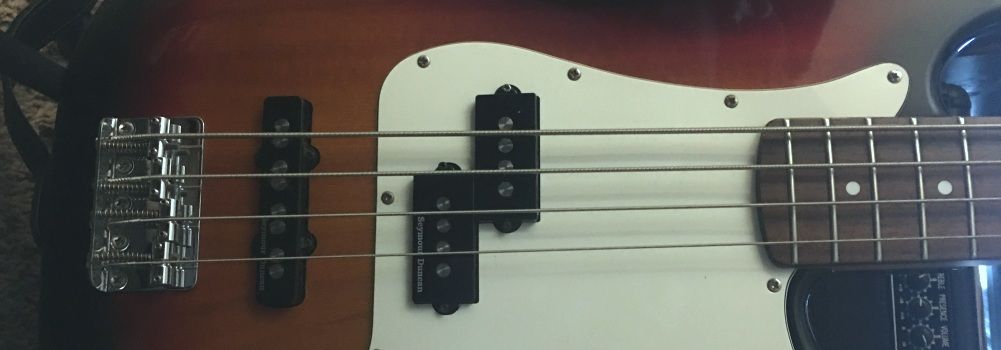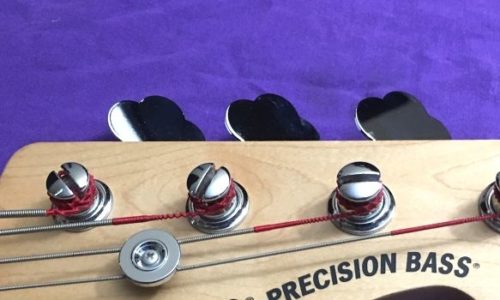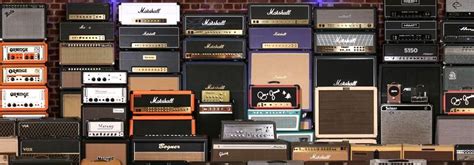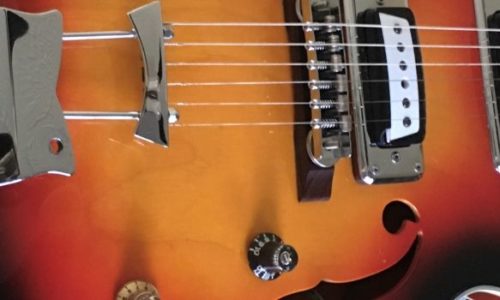Best Bass Guitar Strings 2020

Best Bass Strings 2020
This article is an overview of popular types of electric bass strings, brands, materials, and prices.
Most bass players are interested in trying different types of strings to discover what works best for them. Unfortunately, the price of bass strings inhibits a lot of exploration. This article can help you shorten the learning curve to find the best strings for your bass. Whether you’re playing hard rock, metal, jazz, slap, funk, R&B, blues, country, or worship music this article is for you.
Read more to gain an understanding of types of strings, how they are made, and what to look for in your next set of bass strings.
Types of Bass Strings
There is a wide variety of strings for electric bass guitars. Each type has its own unique influence on tone, ease of playability, and durability. Although there is a lot to be said for high-end strings, simply buying expensive strings doesn’t mean greater player satisfaction. The best thing you can do is to become familiar with string construction, materials, and gauges. From there, compare string size sets, and pricing to start experimenting. This knowledge will guide you to the strings that can give you an optimal playing experience.
Should you read online reviews? Online reviews have some value for learning. Keep in mind that reviews are rarely written by an expert. Even comments among the best bassists of all time may differ. The bottom line is you have to find what works for you.
Bass String Basics
Bass Strings Materials and Construction
All bass strings have a core wire which has another wire tightly wrapped around it. The core wire is either round or hexagonal. The external wire is round nickel or stainless steel wire. Some external windings (wire wraps) have coatings
Bass String Core Wire
Per the Strings and Beyond website, “Guitar Strings used to be made with round cores, but high production manufacturing made it hard to wind the strings efficiently using the round cores. The introduction of hex cores allowed for more efficient manufacturing and more consistent string winding tension.”1. In terms of playability, round-core strings are more flexible while hex-core feels stiffer.
There are sound and tone differences between round core and hex core. Generally, round-core strings have a more rounded bottom and softer highs, whereas hex-core strings have a brighter tone. Hex-core strings are believed to offer improved tuning stability over round-core strings.
Helpful Tip: Do you want to promote optimal tuning stability when installing new bass strings? Simply make a very short 90-degree bend at the point where you cut the string. This mitigates slippage between the core and the outer wraps.
Roundwound Bass Strings vs Flatwound Bass Strings
Roundwound strings are made with a round outside wire wrap covering the inner wire core. By comparison, roundwound strings are a bit brighter than flatwounds. When sliding your fretting hand, roundwound strings have a noticeable texture. With roundwound strings, there’s often a noticeable sound when sliding your hand over the strings.
Flatwound strings are made with flat outside wire covering the inner wire core. By comparison, flatwound strings deliver a tone that is darker and warmer than roundwounds. When sliding your fretting hand, flatwound strings feel very smooth. With flatwound strings, there is virtually no noise when sliding your hand over the strings.
Bass String Gauges and Tone
The sizes of your strings play a key role in shaping your tone. The website MusicRadar.com states, “As regards playability, generally lighter gauges are great for slap bass or fast leads, whereas a weightier set will give you fatter tone for heavy metal, modern RnB and for down tuning.”.3 The top 3 popular bass string sizes, in order of popularity, are 45-105, 50-110, and the basic 40-100. Many beginners, short-scale basses originally have a set of light gauge strings (.040 .065 .080 .100). Long-scale most often has 40-100 or 45-105 string sets. Manufacturers do not necessarily use the same combination of string sizes to create a “set of bass strings”.
What Size Are My Strings?
How do you know what size strings are on your bass? Most bass players simply “buy a standard size set of strings”. This works most of the time but you really do need to know you’re installing sizes that fit your net slots. The best way to determine the size of your strings is to use a 0-1″ micrometer (digital caliper) that measures in the thousandths of an inch. Although not really practical for non-techs, we recommend the Digital Calipers sold by StewMac.
Before Changing Bass String Sizes
Changing string sizes means changing the tension on your neck and may mandate modifying tour nut’s string slots. The change in tension will have some level of effect on the action. Adding or decreasing tension impacts the control the truss rod has on relief. Installing heavier strings in slots that do not allow for free movement can cause tuning problems. This may require If you decide to change to heavier strings the nut slots on your bass may need to be widened. Then, if you decide to go back to lighter strings, you may need to replace your nut to regain thinner slots. Before changing string sizes you should carefully evaluate the full ramifications. If you’re chasing a specific tone, you’re just going to have to bite the bullet and go for it. The comforting news is few bass players decide to revert back to lighter strings.
Helpful Tip: For future reference, mark the package with the date you changed strings and keep it in your instrument case.
How much will it cost to change my strings? If it’s a basic string change, and you do it yourself, the cost for new bass strings should between $23-$45. If you don’t do your own tech work, changing your strings may be a $80-$150 project for new strings with a professional bass setup.
Top 10 Bass String Brands
- Ernie Ball Strings Ernie Ball Slinky bass strings are very popular largely because they offer good quality at a reasonable price. Ernie Ball offers a wide variety of strings and sets for all types of music. From light to heavy, Ernie Ball strings sets include Super Slinky bass strings, Slinky bass strings and Power Slinky bass strings. A 4-string set of Ernie Ball strings cost around $20.
- D’Addario Strings D’Addario makes excellent strings including the XL, EXL, NYXL sets. Some of the attributes associated with D’Addario bass strings are wide harmonic response, great dynamic range, superb tones. A 4-string set of D’addario bass strings costs around $20 for the EXL strings to $30 for the NYXL strings.
- DR Strings DR strings offer a lot of bang for the buck. From the standard Hi-Beams to Black Beauties with a proprietary K3 coating you can expect strings that offer durability and excellent tone. The Black Beauties are popular because they offer the corrosion resistance of coated strings without sacrificing clarity and articulation. A 4-string set of Black Beauties costs about $30 plus tax.
- Fender Strings Fender bass strings are undeniably a quality product. Fender offer Slinky Roundwounds and Slinky Flatwounds in many gauge size sets. Fender makes bass strings for any bass, any genre, and at very competitive prices. A set of Slinky bass strings costs &17-$25.
- GHS Bass Boomers GHS promotes these strings by saying, “Utilizing a nickel-plated steel wrap wire (with a special combination of stainless steel and nickel-plate on the low E and B strings) over a hex core, Bass Boomers® have a distinctive low-mid punch that sits well in any musical genre.”. A set of GHS Boomers costs between $18-$28.
- Elixir Strings Elixir is best known for coated strings including their patented Polyweb® and Nanoweb® coatings. Elixir’s coated strings have earned a reputation for lasting longer than most strings. A drawback for some is that overall they lean toward high-end tones and are a little short on th warmer, low-end tones.
- Rotosound Strings Rotosound is a very established bass strings manufacturer with it’s products used by Geddy Lee, Chris Squire and others. In particular, the Rotosound RS66 roundwound strings are extremely popular. You can pickup the classic Rotosound RS66 strings for around $20.
- La Bella Strings LaBella has a very diversified product offering for bass players of any genre. A large number of bass players rave about LaBella 760 flats. The Deep Talkin’ Bass strings cost under $45, and they’re worth every penny.
- Dunlop Strings Dunlop offers a nice array of bass strings at affordable prices. Bass players describe Dunlop bass strings as being bright, clear, and solid. A set of Dunlop stainless steel or nickel plated strings costs around $16-$20.
- Cleartone Strings What list would be complete without a darkhorse contender? Cleartone strings are coated and promoted as having good corrosion resistance and longevity. Cleartones cost $20-$35 a set.
Best Bass Strings By Music Type
One way to find strings that you like is to try the strings that are preferred for the types of music you play. Obviously, there is a wide range of opinions on strings and a number of ways to manage tone. However, identifying the most popular strings for what you play can shorten your search. The following suggestions are based on feedback from bass players in the United States. The recommendations in this list are not influenced by bass strings manufacturers, distributors, dealers, or retail stores.
Best Bass Strings for Hard Rock
Recommended bass strings for metal bass players and drop tuning, in no particular order, are: DR Hi-Beams 45-105, DR Fat Beams 45-105, LaBella Hard Rockin’ Steel 30-85, Ernie Ball Regular Slinky 50-105.
Best Bass Strings for Metal
Recommended bass strings for metal bass players and drop tuning, in no particular order, are: DR Black Beauties 50-110, DR Drop-Down Tuning 45-105, LaBella Drop Tune Strings 54-111, D’Addario EXL160 50-105.
Best Bass Strings for Slap or Funk
Recommended bass strings for funk or slap bass players, in no particular order, are: LaBella Deep Talkin’ Bass 52-110, DR Hi-Beams 45-105, D’Addario NYXL 55-110, Rotosound FM66 Funk Master 30-90.
Best Bass Strings for Jazz or R&B
Recommended bass strings for R&B and jazz bass players, in no particular order, are Fender Jazz Bass Highway One 45-105, DR Low Riders 45-105, Ernie Ball Hybrid Slinky 45-105, Ernie Ball Slinky Flatwound 55-110 strings.
Best Bass Strings for Country
Recommended bass strings for country bass players, in no particular order, are: Ernie Ball 2840 Beefy Slinky 65-130, Ernie Ball Power Slinky 55-110, DR Black Beauties 50-110, Rotosound RS66LD 45-105.
Best Bass Strings for Gospel and Worship Music
Recommended bass strings for Gospel and worship bass players, in no particular order, are DR Black Beauties 45-105, GHS Boomers L3045 40-95, D’Addario EXL170 45-100, Rotosound RS66LA Swing Bass 30-85.
Do a Good Thing. Donate Your Used Strings
If you want to do something good with your used strings, send them to Restrung Jewelry in New Orleans. Contact them via email and they will send you a self-addressed, postage paid envelope for you to mail them your strings.
Help out a fellow bass player with friendly comments on this article. Share your experiences and thoughts on the types of bass strings you’ve tried.
FOOTNOTES
- 1 Unknown, “Hex Core vs Round Core Strings”, March 1, 2019, Available from Strings and Beyond
- 2 Chris Jisi, “Unwinding The World Of Bass Strings”, February 20, 2018, Available from BassPlayer.com
- 3 Chris Bird, “Best bass strings 2019: vintage and modern string sets for every style and budget”, October 28, 2019, Available from MusicRadar.com




There are a few key factors to keep in mind while searching for a good set of bass guitar strings. Before you begin to play, you need to think about your personal playing style, the tone you want to achieve, and the age and condition of your bass.
The LaBella flats are my absolute fav!
Exceptional post, however, I was wondering if you could add something about half-wound strings. Pleeeease
Good article. I definitely appreciate this site. Thanks!
Nice article. I prefer Roto 66, D’Addario Chrome and LaBella Deep Talkin’. Contrary to a common belief, flatwounds are not dead-sounding. In fact, they provide the perfect vintage tone for a Precision Bass.
I think a bassist may be a bit disappointed if they use lesser flatwounds like Ernie Ball or GHS boomers. You’ll save a few bucks but lose a lot on tone.
I’ve been using cleartones lately they are extremely bright have decent low end and they last bit longer than most .
LaBella strings – excellent quality and they last a long time.
Is it really true that you should change your bass strings? I read that a lot of pro players keep the same strings for many years, and say they have “mojo”.
I found an interesting thread on bass strings silk colors. The thread is on a forum at TalkBass.com (which is a pretty cool website)
I’ve been a Roto guy for over 20 years. For me, the feel and tone are perfect.
Maybe add a little info on string tension, and how it relates to playability?
Lovin’ my Labella Deep Talkin Bass strings!!!
LaBellas are my def go-to strings. They have a few different string sizes which helps a player to find the right tone. One thing I’ve learned is that a thin neck (like a jazz neck) does not handle high tension very well. If your bass has a thin neck you should not try the heavy sets.
I’m a huge fan of LaBella flats – the only string I use.
You have made some good points there. I looked on the internet for additional information about the issue and found that, by comparison, people should really like this web site.
Excellent article! We are linking to this particularly great article on our site. Keep up the good writing.
Way cool! Some very valid points! I appreciate you writing this write-up and also the rest of the website is also really good.
Been using D’AddariosXL love them to death 5s4s and tenor bass
Not a fan of nickel strings….not enough punch out of em. Stainless is very bright&punchy!!
You should mention that D’Addario makes Fender’s strings for them.
The extra first string is a useful addition to these nickel-on-steel sets, especially to players who are prone to snapping that high E which, when you think about it, is most of us.
I know they’re not for everybody but for me the Labella flats are sweet beyond description. They feel great, have a rich mellow tone, and they last forever.
Strings make a huge difference in how your instrument sounds and feels when you play. If you go cheap you may save a couple of dollars but what you get will stink.
Cheap strings break easily, usually have no corrosion resistance, sound terrible and they feel rough/sharp. For me, the GHS Boomers, Oscar Schmidt, and DR strings have been terrible.
Can you add some content for the best strings for a Dingwall bass? A lot of strings at the guitar shops can’t handle the tension of my NG2. Thanks!
If you’re willing to wait for it to arrive there are some great bass strings made overseas. Check out brands like Optima (Germany), Thomastik-Infeld (Austria), and Pirastro (for upright bass)
I’ve used LaBella strings for over 20 years. They sound great, last a long time, and the flats are incredibly comfortable.
A number of brands now have sets catering for drop tunings and extended range guitars, but Dunlop says these Heavy Core nickel-wrapped steel strings have the core-to-wrap ratio to rule them all, one that maintains a comfortable and consistent tension in lower tunings.
Long time user of Rotosound and DR. Rotosounds when I need cheap but good. DR when I have more money!
Love them both!
You made some good recommendations for bass strings. I did some online research on bass strings and found most individuals agree with your site.